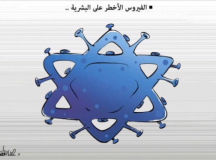Cary Nelson is emeritus professor at the University of Illinois at Urbana-Champaign. His Hate Speech and Academic Freedom is forthcoming in April.
When Republican congressional representative Elise Stefanik braced three US university presidents with her stark challenge on 5 December, the right answer should have been easy to offer. ‘At Harvard,’ Stefanik asked the university’s president Claudine Gay, ‘does calling for the genocide of Jews violate Harvard’s rules of bullying and harassment? Yes or no?’
Like the other presidents, Gay tried a lawyerly qualification: ‘It can be, depending on the context.’ Confronted again, Dr. Gay elaborated: ‘Antisemitic rhetoric, when it crosses into conduct that amounts to bullying, harassment, intimidation, that is actionable conduct, and we do take action.’
Some have applauded Gay’s answer as precise and accurate, despite the fact that it appeared to represent appalling moral blindness. MIT’s president Sally Kornbluth fairly noted that they aren’t actually hearing explicit calls for the extermination of the world’s Jews. Yet the omnipresent slogan ‘Palestine Will Be Free, From the River To The Sea,’ whatever its previous ambiguities, has always meant eliminating the Jewish state and the right its citizens have to political self-determination. Moreover, the slogan has acquired unavoidably murderous and genocidal force since the Hamas massacre of 7 October. You cannot responsibly ignore those connotations and reinvest the slogan with innocently idealistic aims for regional peace. Democratic House of Representatives member Rashida Tlaib tried to do so and failed. Others try, with equal absurdity, to claim that ‘Globalize the Intifada’ invokes only the less murderous First Intifada, not the Second Intifada with its signature suicide bombings of ordinary civilians.
All the post-10/7 antizionist campus slogans—from ‘Glory to Our Martyrs’ to ‘Globalize the Intifada’—now carry genocidal freight. If the need for university leaders to respond to explicit calls for genocide is hypothetical, therefore, the need to respond to implicit calls for genocide is not. Like much else that has changed as a consequence of the Hamas pogrom, the implications and effects of anti-Israel rhetoric have been dramatically transformed.
Established as the 20th century’s defining crime, the historical sequence of events that opened an abyss between past and present, the genocide of the Jews calls for unequivocal condemnation whenever people appear to call for it to begin again.
The three university presidents embodied a failure of leadership for all to see. Lost in the widespread coverage, however, is the fact that the International Holocaust Remembrance Alliance (IHRA) Working Definition of Antisemitism calls for an examination of context before deciding whether a particular statement is antisemitic. But context is hardly at issue in defining whether the most extreme of all candidates for antisemitism—calls for Jewish extermination—are antisemitic and thus constitute harassment when issued on campus. No elaborate inquiry, no delay for contemplation, is required.
Context is essentially irrelevant in understanding the effect that calls for genocide have on Jewish students, staff, and faculty members. Context can be relevant in establishing intent, though intent is notoriously difficult to resolve. Where context is powerfully at issue in this case is in deciding what actions a college or university should take.
Despite what the implicit calls for genocide have come to represent, there remains sufficient ambiguity to make a choice for intensive education rather than punishment when students call out the relevant slogans. Context could establish that fervid hate speech was at issue, but I would still urge university restraint in reacting at an individual level. On the other hand, context can make it clear that a forceful university response is needed. These large rallies where shouted antizionist political slogans become personally threatening require intensive education about the harmful effects if people are to understand the impact of their speech acts.
During rallies against the Vietnam War In the 1960s and 1970s , demonstrators (including this author) joined in calling out such slogans as ‘LBJ, LBJ, how many kids did you kill today?’ But that slogan was an attack on a political leader, US president Lyndon Johnson, who bore substantial personal responsibility for the escalation of the war. It was not an assault on an entire people aimed at indicting their core identities and their right to political self-determination. Both then and now, context helps clarify the moral and political implications. In both cases, the pleasures of group exhortation are part of the story, but the consequences are different.
But what about the hypothetical calls for actual genocide that Representative Stefanik invoked? If a faculty member voiced such a call in a classroom, fitness to teach should be very much at issue. He or she would have violated the most basic standards for faculty conduct in a classroom. Removal from the classroom and termination of employment could be consequences following appropriate review and due process. If a faculty member stood on stage at a campus rally and issued the same call similar sanctions could apply. On the other hand, I give more latitude to student expression. A student issuing a call for genocide could be put on probation. Repeat offenses could justify expulsion.
That gives us limit cases at one end of the seriousness spectrum. But examples requiring no such major consequences are not difficult to imagine. Consider: three freshman students meet for the first time in a dormitory room. An update about the 2023 war with Hamas is playing on the news. One of the students declares ‘All these Jews should be killed.’ On the face of it, it is a private conversation. But one of the students files a complaint with the campus, claiming psychological harm and harassment. At that point, it becomes a disciplinary case. The university president might publicly reiterate the warning that calls for genocide are categorically unacceptable without citing the names of those involved in the dorm room incident. And the offending student might be required to take a class on antisemitism. The student might be asked to issue an apology ‘once you fully understand the gravity of what you said.’
So what might the presidents have answered? ‘Yes. Calls for genocide are absolutely unacceptable and certainly violate our rules against bullying and harassment. Then we have to decide what action to take. That depends on what was said and on its particular context. Let me briefly give two very different examples.’ Examples like those above could have followed. I would not have used the word ‘but,’ as that could have triggered a further rejoinder from the congressperson. But it was entirely possible to take a firm moral and institutional stand while demonstrating that careful distinctions are necessary.
That could have been followed by pointing out the need for more comprehensive education about the history and morality at stake, given that students too frequently have no idea what the slogans they chant actually mean. We now know that some students chanting ‘From the River to the Sea’ cannot name the river or the sea. We assume that faculty members are somewhat less ignorant.
Debates about this matter often rely on dichotomous choices: either support free speech or suppress it. Those who want universities to keep silent after hateful speech often frame the argument this way. But there are a range of choices. Condemnation will have a chilling effect on some, but that is not always to be regretted. If universities are dedicated to the search for the truth, then those in charge of a campus have a responsibility to endorse the truth and the values that undergird higher education.
Yet when faced with challenges represented by a divided campus—the consequences that specific anti-Israel statements often produce—administrators commonly prefer to equivocate. They offer unspecific, anodyne condemnations of antisemitism rather critiques of the antisemitic statements that students and faculty actually make. Although unconscious antisemitism no doubt plays a role here, moral cowardice and fear of controversy are likely dominant. If a president condemns ‘From the river to sea, Palestine will be free’ because it carries genocidal import after October 7, he or she will be attacked for suppressing free speech by a major portion of the campus. Even in Britain, where hate speech does not have the protection of the First Amendment to the US constitution, and where such speech faces criticism and efforts at moderation, administrators would find their critiques of eliminationist anti-Israel rhetoric to be problematic. That reasoning has been repeatedly employed when people both in Britain and the US argue against adopting the IHRA Definition of antisemitism. A president typically realises there’s nothing to gain from provoking the inevitable controversy.
That helps explain the very different US campus administration responses to the murder of George Floyd by Minneapolis, Minnesota police officers in May 2020. Many campus presidents did not limit themselves to vague rejections of racism. They condemned exactly what we all saw in citizen I-Phone videos of the police actions. But campuses then were unified in shock and horror at what was documented. And they had been well prepared to consider racism a core American social and political crime that no self-respecting institution could ignore. No comparable campus consensus obtains regarding antisemitism when Israel’s survival is at stake. Many were in shock and horror at what Hamas terrorists had filmed on October 7. But not all. On campus not only Students for Justice in Palestine (SJP) but also key faculty members and other campus groups either celebrated the massacre or rapidly blamed Israel for what Hamas did. For those groups, antisemitism was a central motivation. Israelis had earned their punishment. Few would make similar remarks when racism was at issue. Israel’s campus opponents also effectively warned administrators what they would face in criticising ‘Globalize the Intifada.’
Yet another Ivy League American campus, Princeton University, illustrates the pattern. Jewish students recognise that chants at recent campus demonstrations organised by Princeton’s chapter of SJP such as ‘From Princeton to Gaza, globalize the Intifada’ and ‘Glory to Our Martyrs’ now carry threatening reference to the 10/7 massacre. Indeed, a group of over 1,800 Princeton alumni wrote to president Christopher Eisgruber asking him to issue a stronger condemnation of campus antisemitism than he had produced before and take other actions. He reminded the campus that he had ‘spoken out against antisemitism before and I do so again now, unreservedly, as I do against Islamophobia or any other bigotry’ . But he would not be more specific or more forceful, insisting that ‘Princeton cannot–and should not–suppress or discipline immoral speech because it is protected speech under our policies and the First Amendment.’ As suggested above, administrators use the false dichotomy to avoid fully confronting antisemitism. In contrast, he had specifically condemned ‘the heartless killing of George Floyd’ and properly listed it among a series of crimes against black Americans. Eisgruber issued no comparably specific critique of SJP’s antisemitic intimidation tactics. But then he faced no potential backlash in condemning American racism.
The presidents of Harvard, MIT, and the University of Pennsylvania did not of course meet with confirmation that their bland, evasive comments about antisemitic genocide were harmlessly anodyne. Quite the contrary. University of Pennsylvania president Liz Magill and Harvard’s Claudine Gay have both been led to resign. One may hope that campuses will now do what they must be equipped to do in response: initiate serious, ambitious, long-term education about antisemitism. Most are not ready for that task. They need to hire capable faculty. They need to add courses to the curriculum. And they need to design and mandate annual antisemitism training for all faculty and staff. Good answers might have gotten the three presidents through that day, but that would not have addressed the growing problem of antisemitism on campus.




































